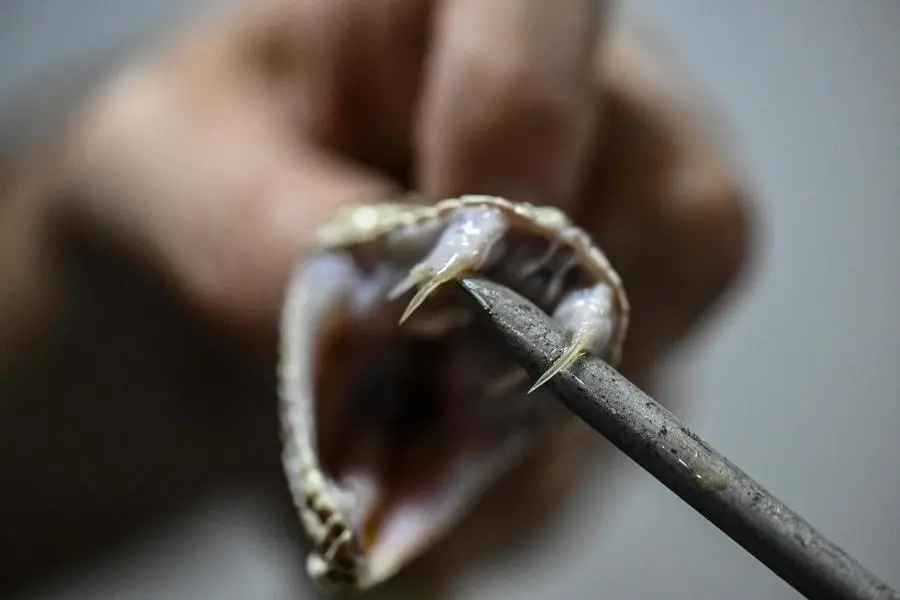PHOTO
When a girl suffered a snakebite in Venezuela, her family had her injected with deer urine along with antivenom, opting in part for a home remedy. Her leg later had to be amputated.
Snakebites in this tropical country are common, and so are misconceptions that lead many people to go for dubious cures, such as spraying the bite with gasoline, rather than seeking medical treatment.
To counter misinformation, the NGO Vivarium Foundation offers educational talks and operates a hotline for snake bite victims.
"Bite (on) left leg with swelling in lower left limb, 6:40 in the morning," reads a text message for Alexander Puerta, 53, who responds to queries from across the country all day.
Experts request data about the victim and, if available, photos of the snake in order to identify the species.
The NGO asks questions that rule out false alarms before activating its protocol, in which it serves as a bridge with health authorities, consults doctors and locates hospitals with antivenom.
Fernando Yanes, another Vivarium expert, says that in 2022 the NGO received more than 700 calls.
"Our dream is that we will be able to pay for examinations, administer the antivenom and follow up with the patient," says Yanes, noting that the NGO currently operates on a shoestring from members' contributions.
- Antivenom is costly -
The most common question asked is where to get antivenom, produced by only one laboratory in Caracas and scarce in public hospitals.
A kit of five ampules in pharmacies can cost up to $500, and more serious cases require further doses, a heavy financial burden in a country with a minimum wage of $4.50 per month.
Venezuela has some 200 species of snakes, about a fifth of them highly venomous.
No official figures exist, but independent estimates say some 10,000 people are bitten a year, with some 60 perishing as a result.
"It is a public health problem because Venezuela is among the 10 to 15 countries with the highest morbidity and mortality due to snake bites," says herpetologist Luis Fernando Navarrete, who runs the serpentarium of the Tropical Medicine Institute at the Central University of Venezuela.
The World Health Organization estimates that 5.4 million people are bitten by snakes every year, causing between 80,000 and 130,000 deaths, most of them in Asia, Africa and Latin America.
The shortage of antivenom "is a global scourge," Puerta says before giving a talk at a nature reserve in Valencia in central Carabobo state, stressing that snakes are integral to balanced ecosystems.
"Unfortunately, in our culture, a good snake is a dead snake," added Navarrete.





















